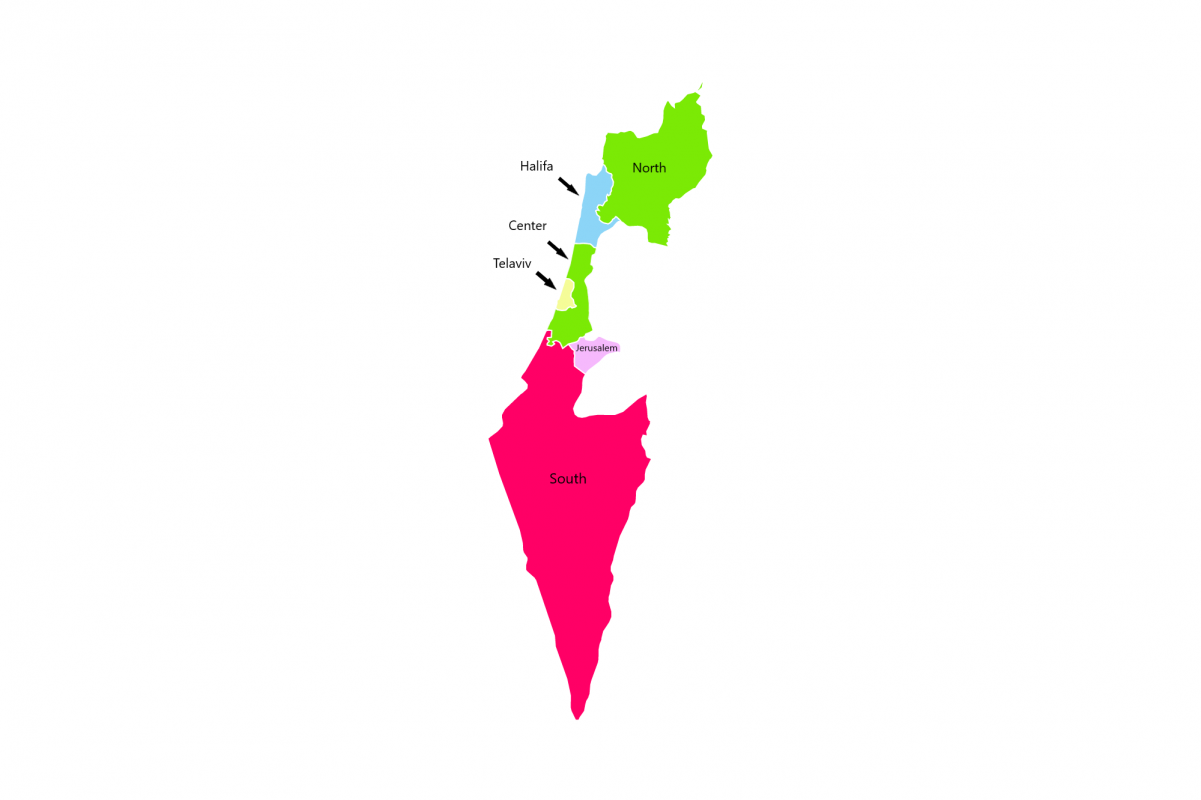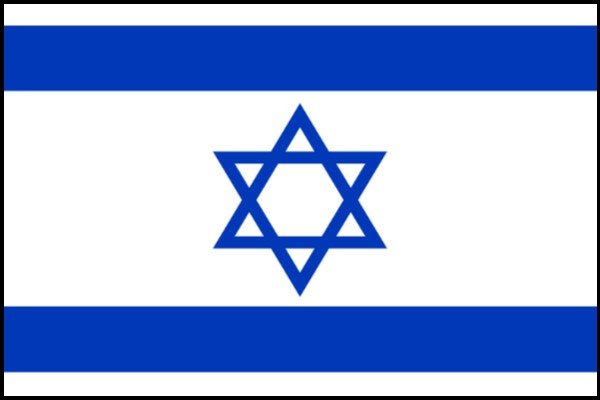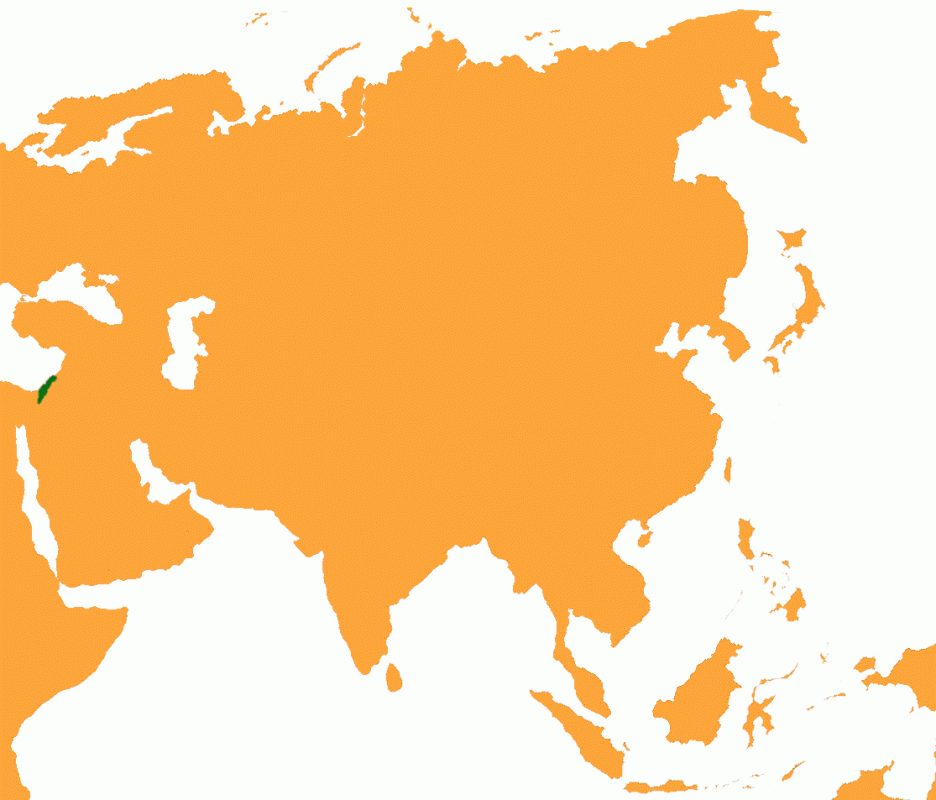CURRENCY
BUSINESS OPPORTUNITIES IN ISRAEL
ISRAEL




FLAG

ISRAEL
CAPITAL CITY

JERUSALEM

NEW ISRAELSHEKEL
Language

Population

88.02 LAKHS
Country
Calling Code

+972
LOCATION:

THE MIDDLE EAST
BORDER COUNTRIES:
LEBANON
SYRIA
THE PALESTINIAN WEST BANK AND JORDAN
THE PALESTINIAN GAZA STRIP AND EGYPT
ABOUT ISRAEL
Amongst all the countries in Western Asia, Israel, officially the State of Israel, is a parliamentary republic located on the southeastern shore of the Mediterranean Sea. Known globally as the “Start-up Nation,” Israel has transformed a historical land into a vibrant hub of innovation, technology, and advanced industries. It is a country of deep historical and religious significance for Jews, Christians, and Muslims, marked by numerous holy sites. Despite its geopolitical complexities, Israel maintains a highly developed, free-market economy with a strong emphasis on research and development. While Jerusalem is Israel’s proclaimed capital, Tel Aviv serves as the country’s main economic and technological center, housing numerous international embassies and businesses. According to the World Bank, Israel is classified as a High-Income Economy, consistently ranking among the most innovative nations globally.
The currency of Israel is the New Israeli Shekel (ILS). As of today’s exchange rates (June 2025), 1 Indian Rupee is approximately 0.0407 Israeli Shekels (or 1 ILS = 24.57 INR). The population of Israel is estimated at approximately 10.1 million in 2024. Israel shares land borders with Lebanon to the north, Syria to the northeast, Jordan to the east, and Egypt to the southwest. It has maritime borders along the Mediterranean Sea to the west and a small coastline on the Red Sea via the Gulf of Aqaba to the south. The official languages of the country are Hebrew and Arabic. English is widely spoken and understood, particularly in business, academia, and the high-tech sector, making it an accessible country for international engagement. Judaism is the dominant religion, coexisting with significant populations of Muslims, Christians, and Druze. The main international airport is Ben Gurion Airport (TLV) near Tel Aviv. Major commercial seaports include Ashdod Port, Haifa Port, and Eilat Port, serving as crucial gateways for international trade.
The standard corporate income tax rate in Israel is 23% for all companies. However, the government offers substantial tax incentives under the Law for the Encouragement of Capital Investments, designed to attract foreign and local investments, particularly in high-tech, R&D, and manufacturing. These incentives often include reduced corporate tax rates (e.g., 7.5% or 16% for preferred enterprises, depending on location and revenue), accelerated depreciation, and grants for approved investments. The Israel Innovation Authority (IIA) plays a pivotal role in fostering technological innovation by providing grants and support for R&D projects. “Invest in Israel” is the government agency responsible for promoting and facilitating foreign investments. Opesh Group of companies will be helping you in completing the Due Diligence process which includes financial planning, registration process, business options, and if required, even helping you find a Rental property for your office.
Establishing a business in Israel is generally straightforward, known for its robust legal framework and supportive environment for startups and high-tech companies. Foreign investors typically establish a company as a Limited Company (similar to a Private Limited Company), a Branch Office, or a Partnership. Israel’s legal system is based on common law, influenced by British Mandate laws. Generally, 100% foreign ownership is allowed in most sectors, with minimal restrictions. The government actively encourages foreign investment, particularly in technology-driven sectors, by offering streamlined registration processes and a vibrant ecosystem that supports innovation.
In case an investor is planning to establish a Limited Company or a corporate business setup in Israel, Opesh Group will be helping you in taking the right decision for setting up your business in Israel and we will also guide you about how to follow the procedure while formulating your company in Israel.
Types of Business which can be started in Israel:
- High-Tech & Innovation: This is Israel’s flagship sector, encompassing cybersecurity, FinTech, artificial intelligence (AI), machine learning, big data, MedTech, AgriTech, autonomous vehicles, and more.
- Life Sciences: Strong capabilities in biotechnology, pharmaceuticals (generic and innovative drugs), medical devices, and digital health solutions.
- Defense & Aerospace: A world leader in defense technology, including cybersecurity, intelligence systems, UAVs, and advanced weaponry.
- Renewable Energy: Focus on solar power, energy storage, and smart grid technologies.
- Water Technologies: Expertise in desalination, wastewater treatment, drip irrigation, and water management solutions due to the country’s arid climate.
- Natural Gas: Significant offshore natural gas discoveries have opened opportunities in exploration, production, and energy infrastructure.
- Tourism & Hospitality: Leveraging its unique historical, religious, and natural sites, though this sector can be sensitive to geopolitical events.
Advantages of Starting Business in Israel:
- World-leading Innovation Hub: Dubbed the “Start-up Nation” with a high concentration of R&D centers and venture capital.
- Highly Skilled Workforce: Educated, entrepreneurial, and technologically proficient talent pool.
- Strong Government Support: Comprehensive incentives for R&D and high-tech investments.
- Access to Global Markets: Free trade agreements with major economies like the US and EU.
- Resilient Economy: Proven ability to adapt and grow despite regional challenges.
- Sophisticated Infrastructure: Advanced telecommunications, transportation, and digital infrastructure.
Imports & Exports: Israel has a trade surplus in services, driven by its high-tech exports, though it generally runs a trade deficit in goods.
Major items which are exported from Israel:
- Electronic components and high-tech equipment (e.g., integrated circuits, software, telecom equipment)
- Cut and polished diamonds
- Chemicals and pharmaceutical products
- Medical and optical instruments
- Defense equipment
- Agricultural produce (e.g., fruits, vegetables)
Major items which are imported in Israel:
- Raw materials (including rough diamonds)
- Machinery and equipment
- Vehicles
- Mineral fuels (despite domestic gas discoveries)
- Electronic goods
- Food products
Major Trade Partners & Blocs: Israel’s largest trade partners include the United States, European Union (Germany, Belgium, Netherlands), China, and India. It actively seeks to expand trade relations globally, including with emerging markets.
Manufacturing: Israel’s manufacturing sector is characterized by its high-tech nature, focusing on value-added, knowledge-intensive products. Key manufacturing areas include:
- Electronics & High-Tech: Semiconductors, telecommunications equipment, computer hardware and software, and defense electronics.
- Chemicals & Pharmaceuticals: Production of fertilizers, agrochemicals, and generic and specialty pharmaceuticals, led by companies like Teva Pharmaceutical Industries.
- Medical Devices: Development and production of advanced medical instruments and diagnostic equipment.
- Diamond Industry: A major global center for cutting and polishing diamonds, relying heavily on imported rough diamonds.
Mining: Israel’s mining sector is limited compared to its industrial and service sectors. It primarily focuses on the extraction of minerals from the Dead Sea, which are rich in:
- Potash: Used in fertilizers.
- Phosphates: For agricultural and chemical industries.
- Bromine & Magnesium: For various industrial applications. Limited extraction of other minerals like copper and gold occurs, but the Dead Sea minerals are the most commercially significant.
- GDP = $548.8 billion (nominal, 2024 est. IMF)
- GDP Growth = 1.6% (2024 est.), 3.1% (2025 forecast – IMF); 2.7% (2024), 4.3% (2025 – World Bank MENA Region average, specific Israel data may vary slightly) Note: Recent geopolitical events have impacted growth forecasts; these figures reflect current estimates.
- *Ease of doing business rank = The World Bank’s ‘Doing Business’ report has been discontinued. In its last edition (2020), Israel ranked 35th out of 190 economies, reflecting improvements in areas like starting a business and paying taxes. The country continues to streamline regulations for businesses.
- GDP per Capita = $57,000 (nominal, 2024 est. IMF)
Thanks for reading this Article. Watch our Video and know more about Israel. For any Business Enquiry Join Millionaire Program and change everything in life and Business.. Call/ WhatsApp +91- 8094607111.
MOST RECENT VIDEOS
SIGN UP TODAY
Get our exclusive content and offers in your inbox










